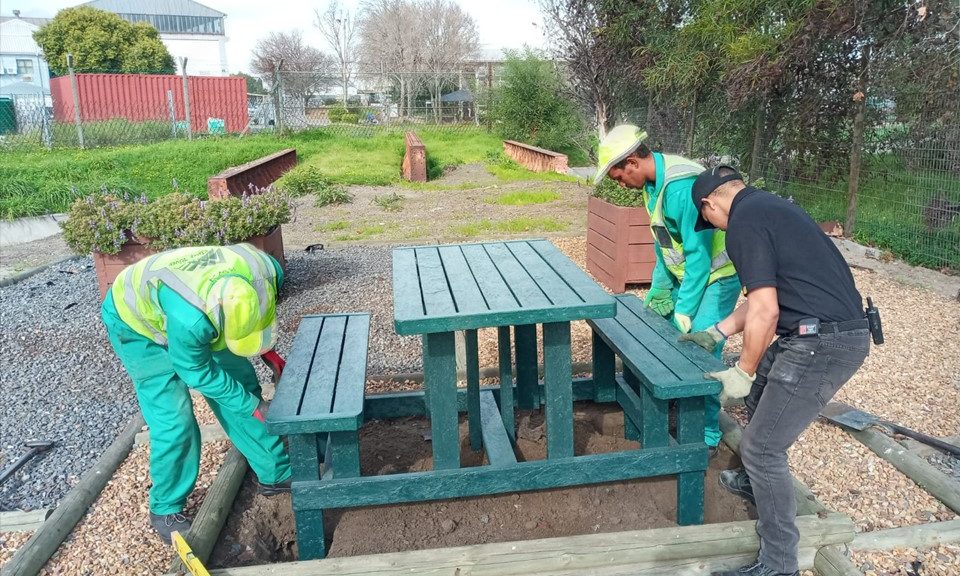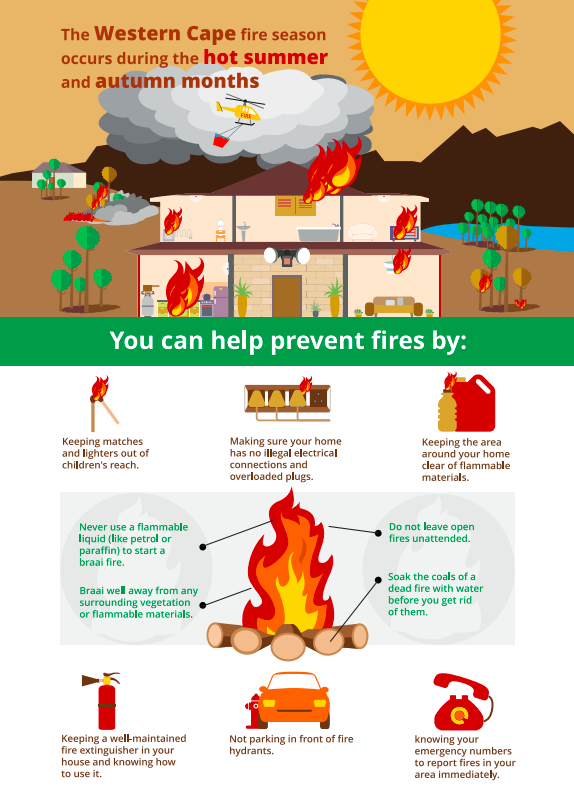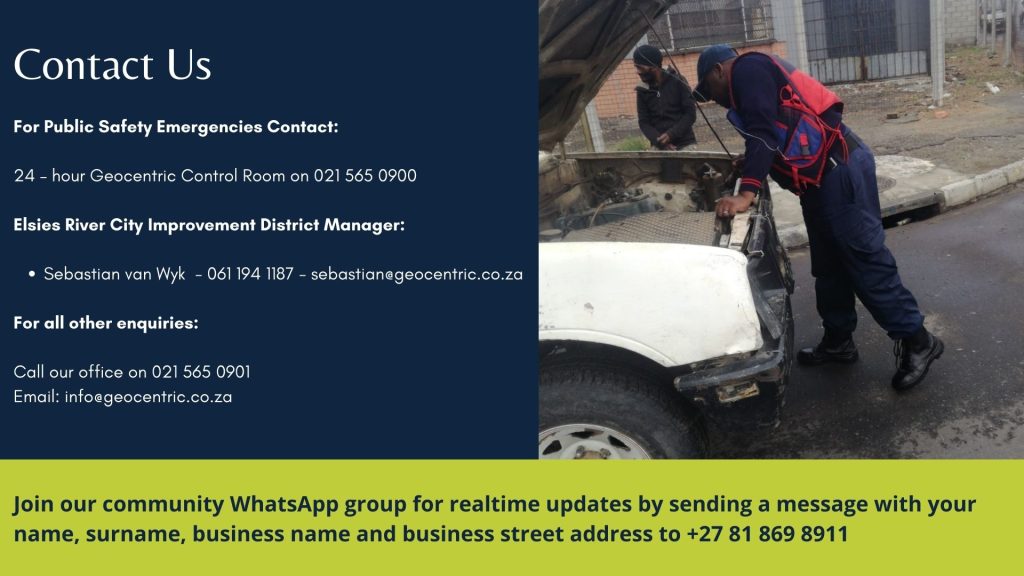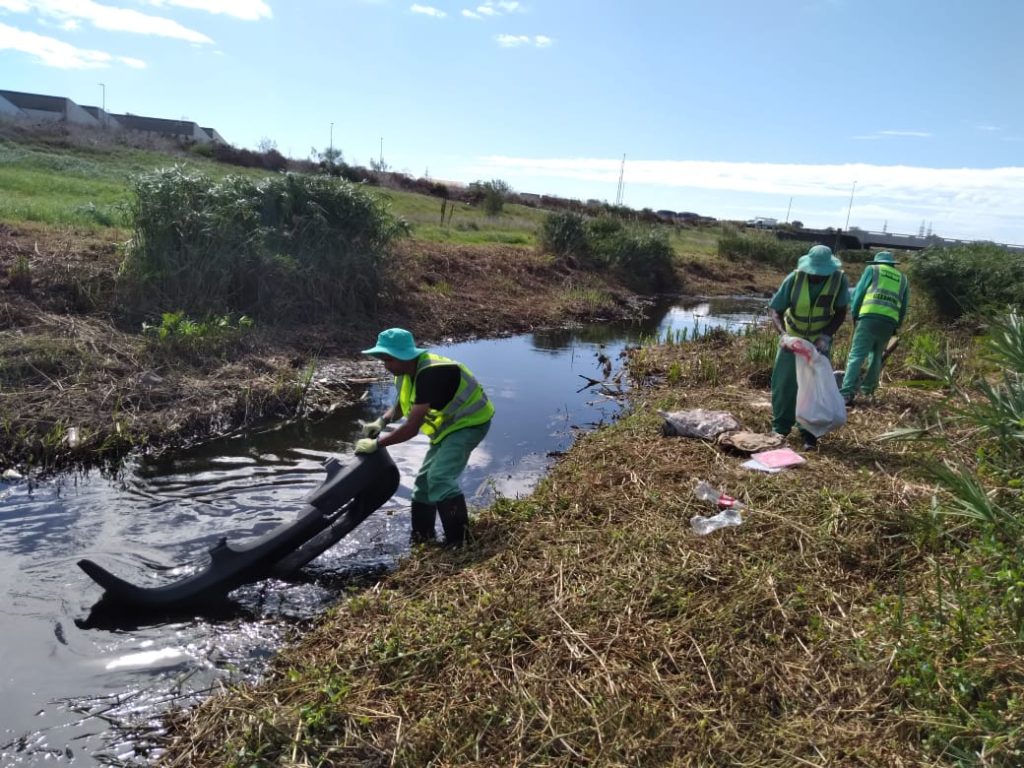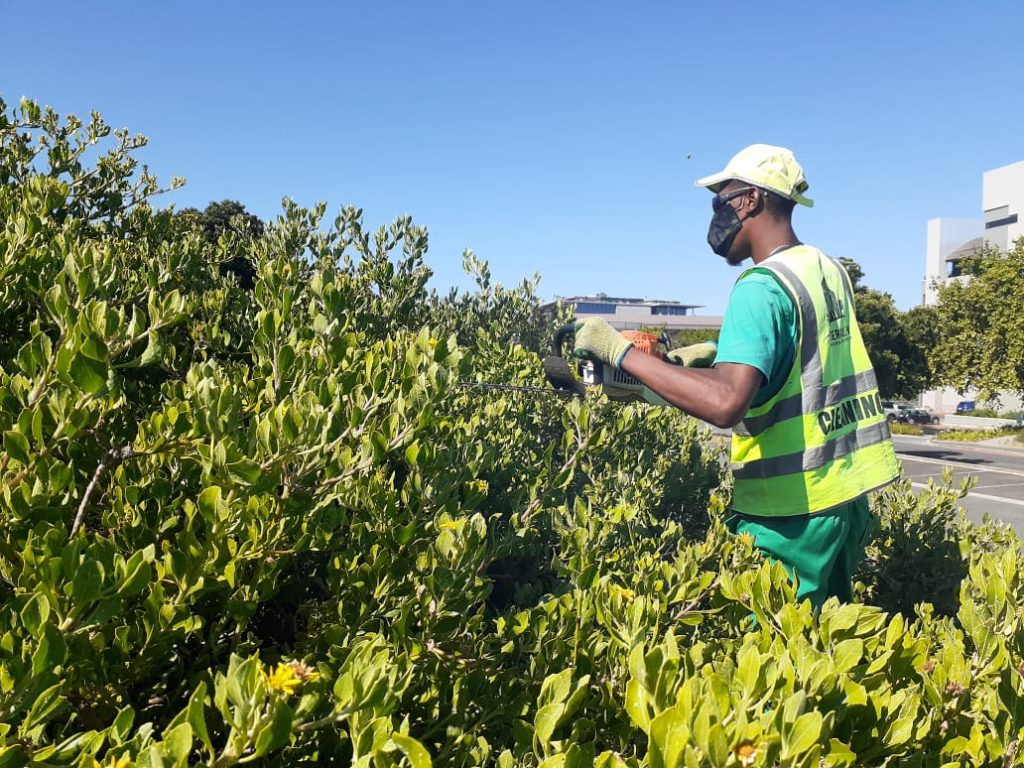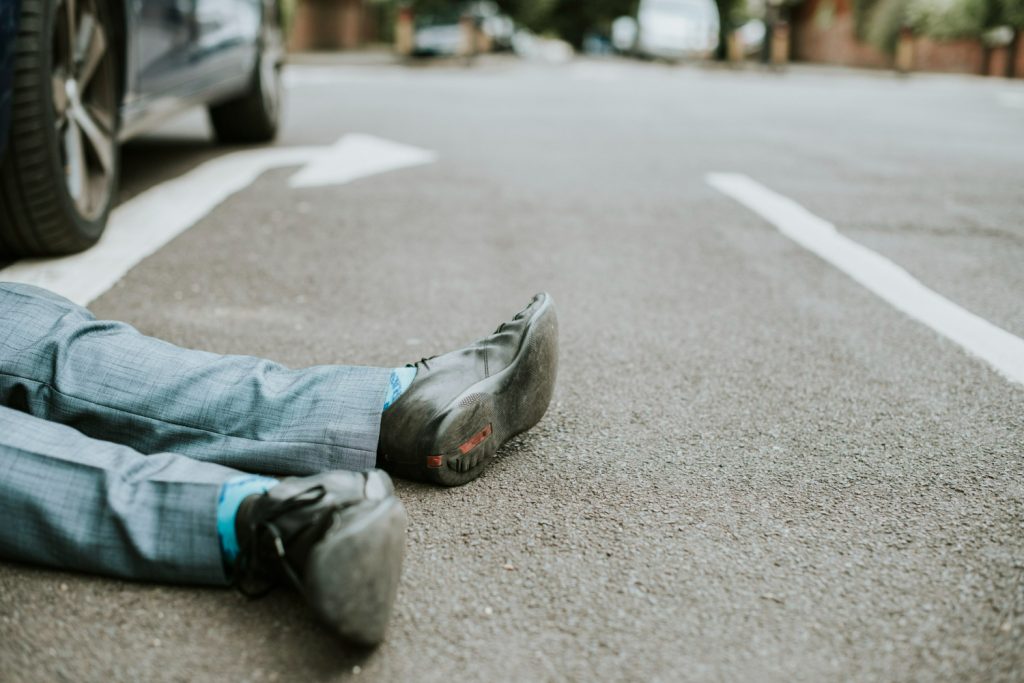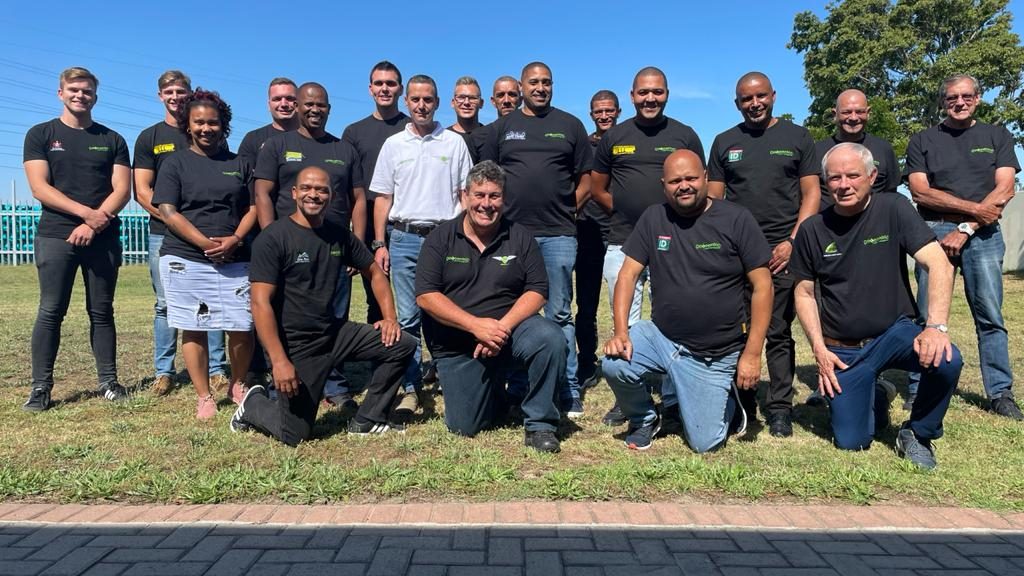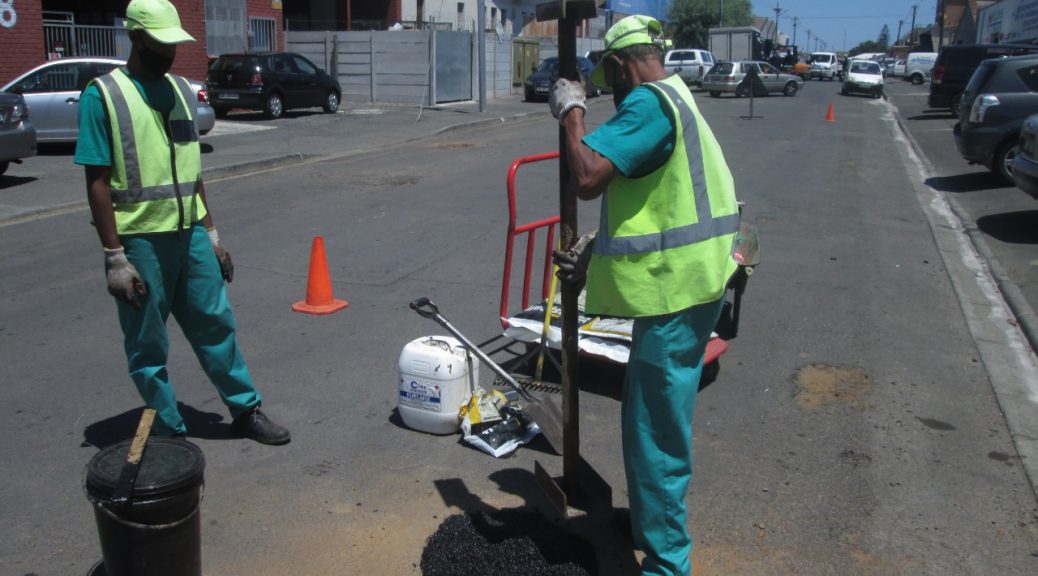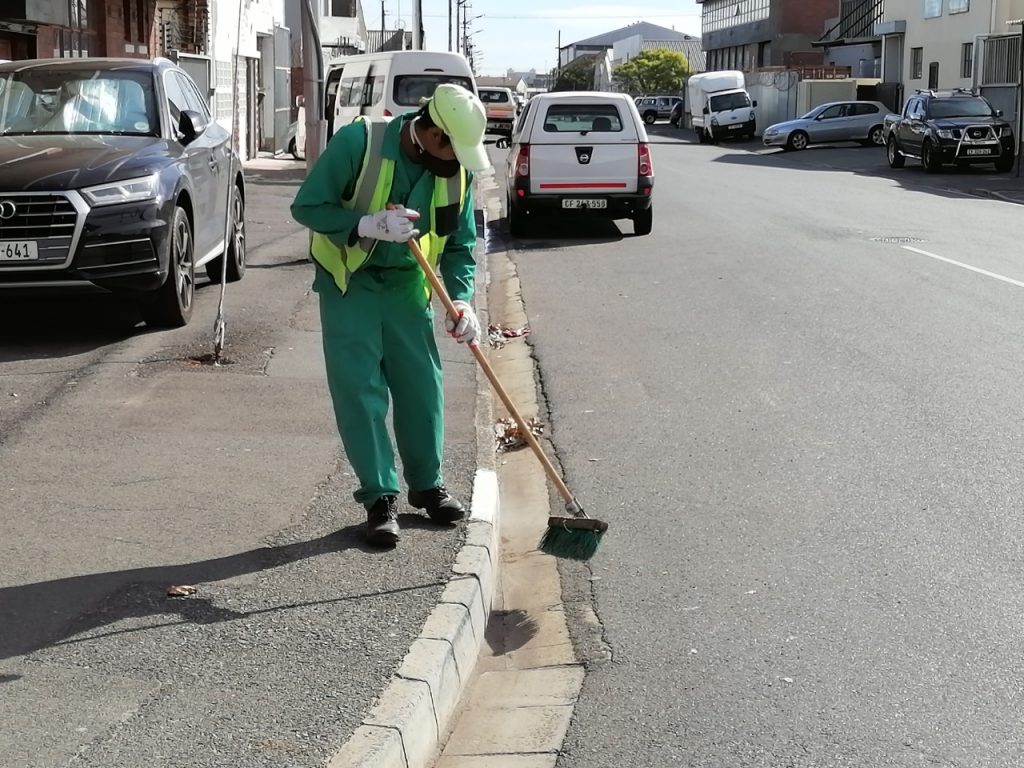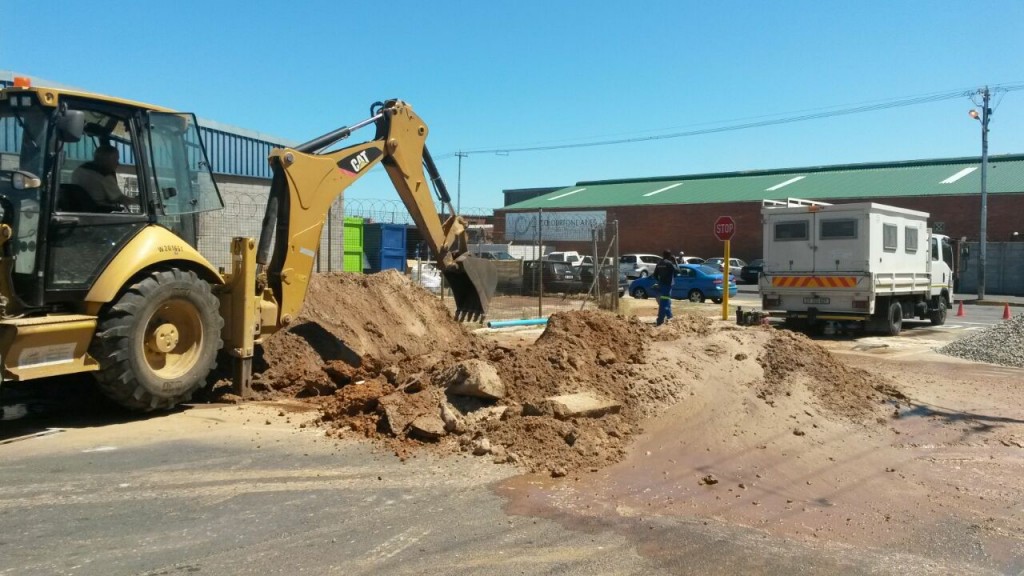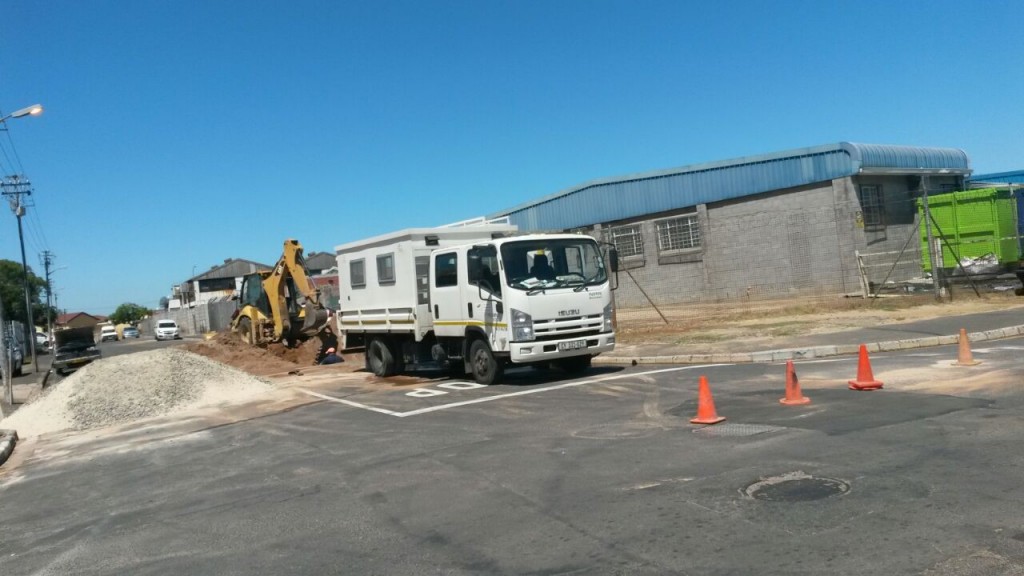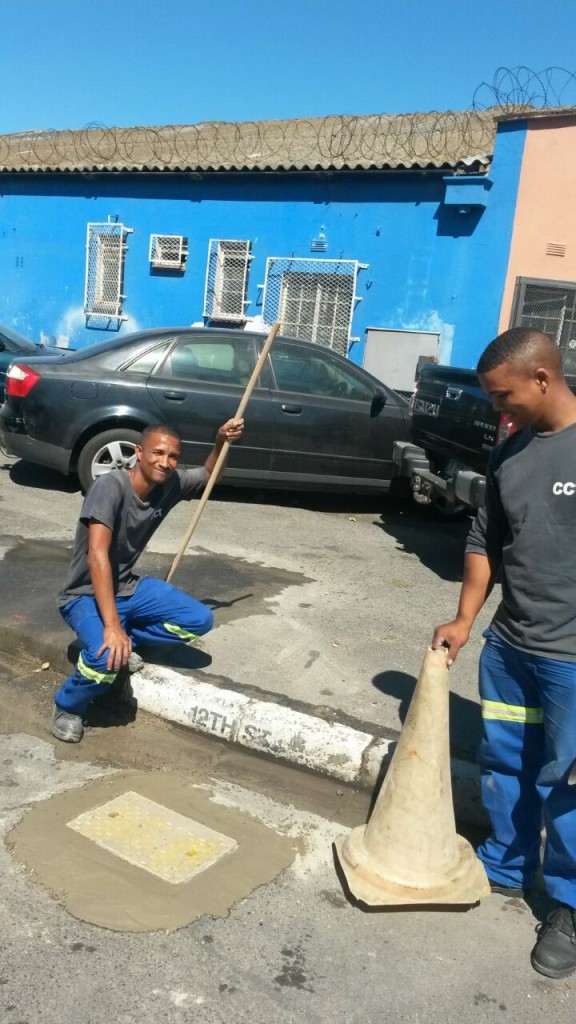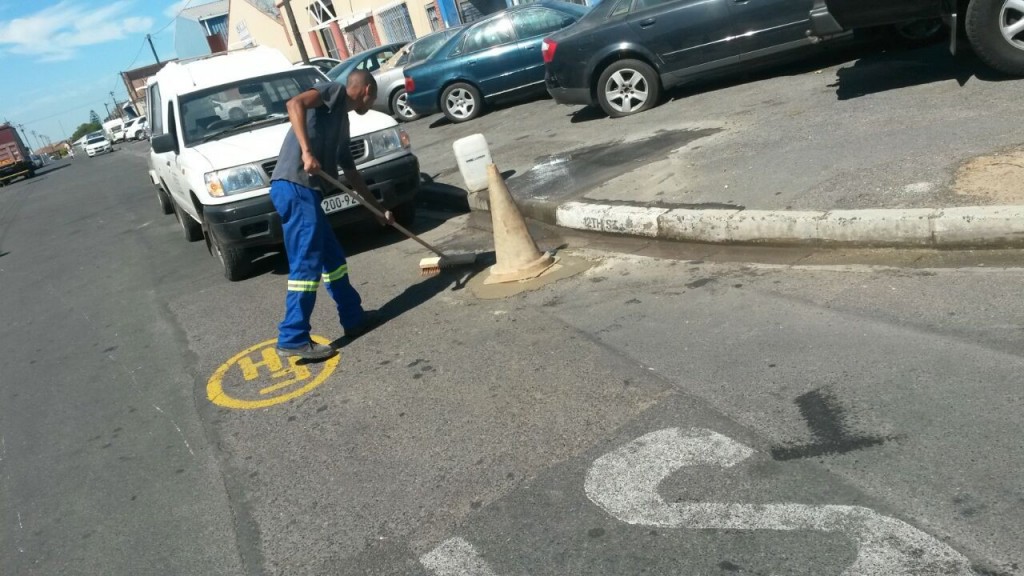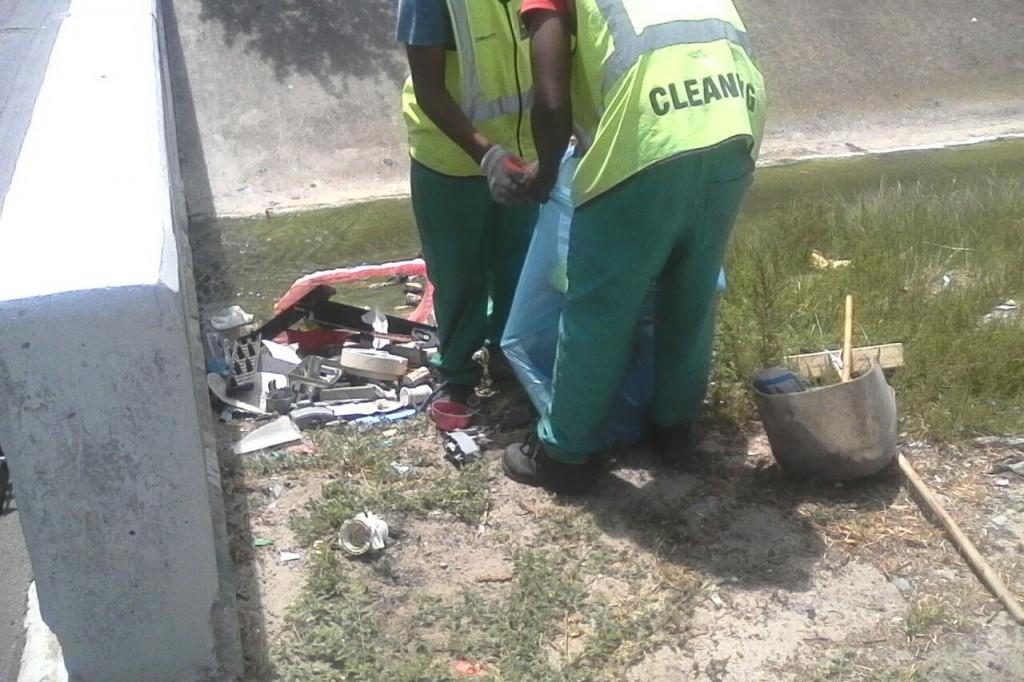2022 has been a year for celebrating successes for Elsie’s River Improvement District and tackling new and ongoing challenges. We renew our commitment to providing top-up services to the City of Cape Town with a special focus on public safety, urban cleaning and management, continuing to lead the charge in the continual improvement of Elsie’s River as a residential and business area.
As we round up 2022 following our recent AGM held in November, we recap on the year’s work, successes and statistics.






Elsie’s River Improvement District’s achievements of the last year are a testament to the team’s commitment, experience and increased on-the-ground presence – led by the capable hands of Geocentric, who have been working with city improvement district initiatives since 2001 and responsible for a total of thirteen of Cape Town’s improvement districts from Salt River through to Strand, Tyger Valley and Wynberg.
“The rollercoasting aftermath of Covid lockdowns steadily calmed down in 2022, yet conditions remained difficult as significant increases in the cost of living and the continuous challenges of load-shedding remained at the forefront,” says Gene Lohrentz, director of Geocentric.
“In the face of these new challenges, the Elsie’s River board and management team have remained steadfast in our commitment to providing high-quality top-up services in Elsie’s River. Embracing and implementing adaptability into our vision now seems entrenched in our day-to-day operations as well as our strategic thinking.”
2022 Elsie’s River Improvement District stats
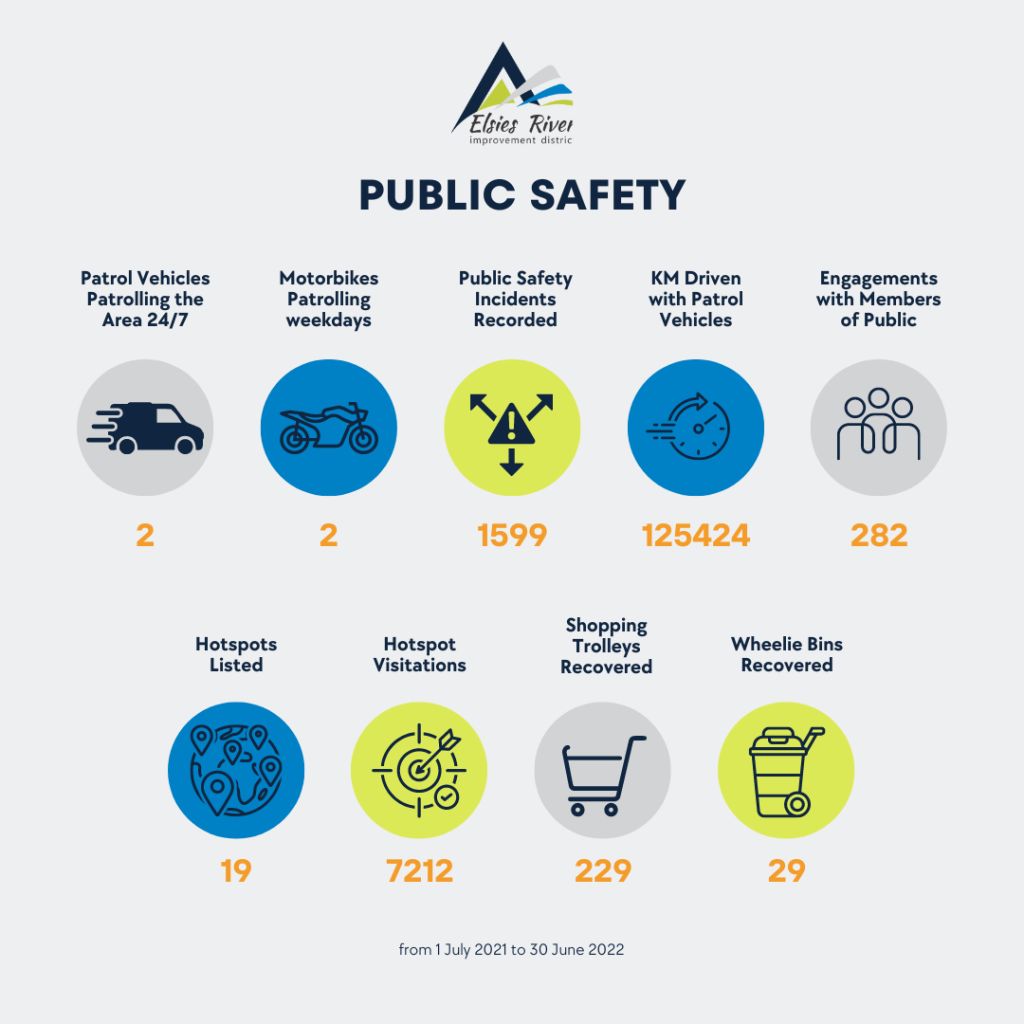
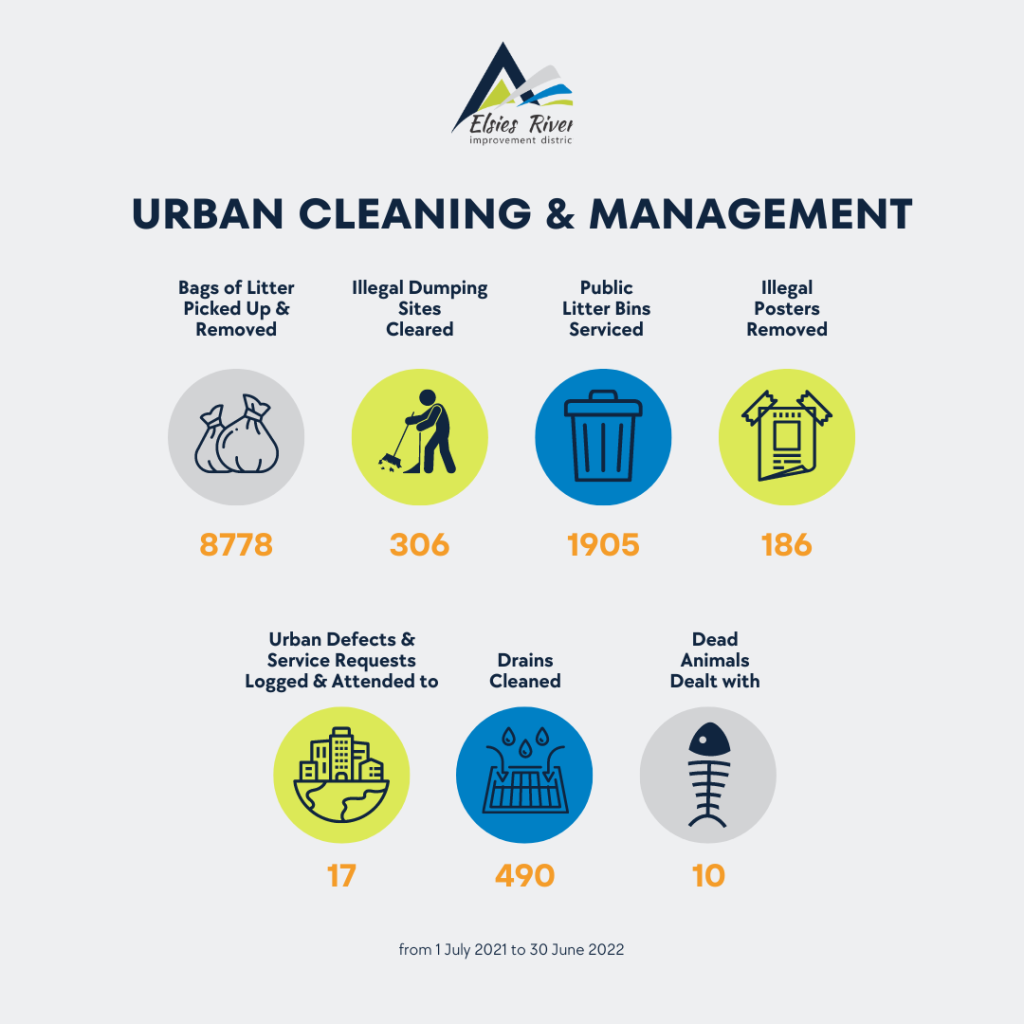
Stay safe this festive season
From increased fire hazards in Cape Town to countrywide holiday travel to seasonal crime spikes, there are many reasons to up our vigilance these summer months and to take the necessary precautions to stay safe.
Home and Work Checklist for Fire Safety
- Ember-proofing any area, requires the removal of all flammable plants up to 7m from a building, as well as overhanging branches. Checking and cleaning gutters and roofing for debris is important too.
- Always remember, your safety is first and if you are not properly trained, call for assistance.
- Make sure that all your insurance documents and other important documentation are backed up securely to the cloud.
- Assign tasks to staff and run fire drills so that everyone is prepared in an emergency.
- If you need to stay and help fight fires, cover your head, nose and mouth and protect your eyes with goggles. Wear good shoes and gloves.
- If you have access to water, wet the roof and gutters to stop hot ash from burning the roof.
- Keep grass cut as short as possible as it helps slow the fire.
- Keep a hose pipe rolled up and ready.
- Keep fire extinguishers around that are regularly maintained and train your staff on how to use them safely and correctly.
Safety Tips To Prevent Property Crime
- Ensure your property can be secured properly. This includes checking all locks, gates, doors, windows and roller shutters.
- Ensure there are no gaps in your fence or perimeter wall or unintentional points of access to your business or home that may need additional security.
- Make sure all bushes or trees close to your walls, gates and fences are trimmed, to avoid the possibility of intruders hiding or using them to access your property.
- Adequate lighting around the perimeter of your property acts as a good deterrent
- Connecting outdoor lights to timers and motion sensors act as an additional deterrent.
- Have an alarm installed by a reputable security company with armed response.
- The key to effective security lies in being able to detect a potential intruder before they gain access. Adding detection beams and sensors of electrical fences vastly contributes to property security
- Ensure your alarm is in working order. Business and property owners should test their alarms at least once a month and should the system require servicing this should be arranged as early as possible.
- Please ensure that all the key holder information is available and ensure that key holders are available and able to come out to the property should the alarm activate, and checking be required.
- Don’t leave ladders, spades or tools outside as these can be excellent break-in tools.
- Ensure that remote controls for automatic gates and garage doors are not left lying around.
- Always be alert to vehicles or persons following you into your entrance or the parking area.
Road safety tips
- Check your vehicle before travelling long distances – including tyre tread and pressure, oil and water, wind-screen wipers, headlights and brakelights and ensure your spare tyre, jack and emergency warning triangle are all intact and stored in your vehicle
- Leave early to be prepared for road congestion during busy periods
- Take breaks to avoid road fatigue which can cause accidents
- Be aware of pedestrians particularly when passing broken down vehicles or public transport
- Never drink and drive
Contact details
As the year draws to a close we remind you once again of our important contact details to report emergencies and incidents.
For Public Safety Emergencies contact our 24-hour control room
- 021 565 0900 – Geocentric Control Room
Emergency numbers
- 10111 – SAPS (South African Police Services)
- 107 – City of Cape Town Disaster Management
City Of Cape Town
- General Enquiries: 0860 103 089 – Sms 31220 (Electricity)
- Cable Theft: 0800 222 771
- Roads And Storm Water: 0800 656 463 – Sms 31373
- Metro Police & Traffic: 0860 765 423
Visit our Contact page for more details and capetown.gov.za for more City of Cape Town Emergency Numbers.
Join our WhatsApp Community Group
If you are curious about the work we do and want to stay up to date with the latest developments in your improvement district, you will be able to join our ERCID business WhatsApp group by:
• Sending a WhatsApp message to 081 869 8911
• You will need to include your Name and Surname or the name of your business
• You will need to include your street address which should be within the boundary of the Elsie’s River Improvement District
• We will add you to the Elsie’s River Improvement District Community Group
Rules and regulations for communicating will be stipulated in the group.

